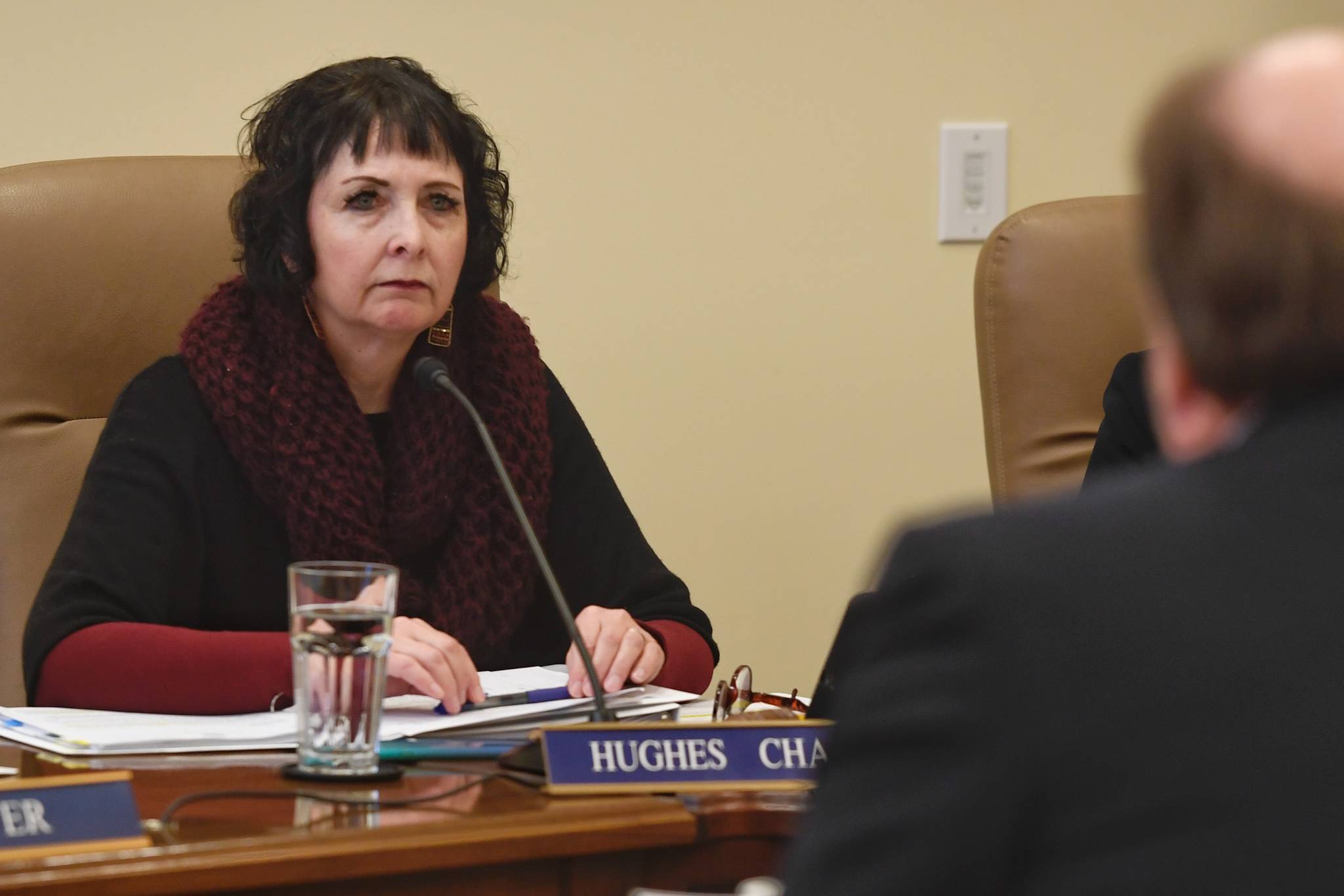New conflict of interest laws enacted last year are causing some hold up for a crime bill in the Senate.
At Monday’s floor session, Sen. Shelley Hughes, R-Palmer, requested that Senate Bill 32 (one of the four crime bills the governor introduced) be dismissed from the judiciary committee, which she chairs.
Her reasoning for requesting the dismissal was that she has a conflict of interest with the bill, since her husband works at a health clinic as a primary care provider, and the clinic sometimes treats Alaskans with addictions who have been ordered by a court for treatment.
“Am I frustrated? Absolutely,” Hughes said on the Senate floor. “I made a commitment to my constituents. (Crime) is the number one mission my constitutions asked me to take on.”
[Ethics restrictions too broad, some lawmakers say]
The bill was dismissed unanimously from the Judiciary committee and reassigned to State Affairs committee. It will now have to start over in the legislative process.
Hughes said later in the floor session that the new ethics laws are overreaching.
“When the ethics law erodes an essential function of the legislature, there’s a problem,” Hughes said. “Yes, our laws should prevent self-enrichment by legislative measures, but the recent changes overshoot that target by quite a bit. The law needs to be fixed.”
The new rules, instituted as part of House Bill 44 and signed into law last year, dictate that a legislator can’t vote on a bill if they or a family member can benefit financially from that bill. The law also forbids legislators from having private conversations about a bill.
“The reach of the recent changes are to the point of ridiculous, despite the fact the changes were made with good intentions,” Hughes said on the floor, adding that she was eager for the House to organize so that they could be able to fix the ethics law.
In an interview last Wednesday, Senate Minority Leader Tom Begich, D-Anchorage, said he believes the Senate Majority is preparing to introduce a bill next week that could help clear up some of the ambiguous language in HB 44.
• Contact reporter Mollie Barnes at mbarnes@juneauempire.com or 523-2228.

